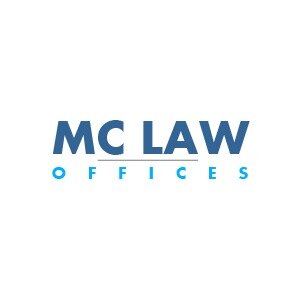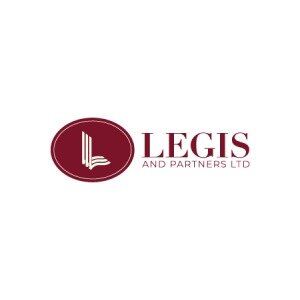Best Renewable & Alternative Energy Lawyers in Port Louis
Share your needs with us, get contacted by law firms.
Free. Takes 2 min.
List of the best lawyers in Port Louis, Mauritius
About Renewable & Alternative Energy Law in Port Louis, Mauritius
Renewable and alternative energy law deals with the legal and regulatory aspects of producing, distributing, and using energy generated from renewable sources such as solar, wind, hydro, and biomass. In Port Louis and throughout Mauritius, there has been a growing emphasis on transitioning to cleaner, more sustainable energy sources to meet climate goals and reduce dependence on imported fossil fuels. The government and various stakeholders are actively involved in encouraging the use of renewable energy through incentives, regulations, and public initiatives. As a result, legal frameworks are evolving to manage licensing, connectivity, tariffs, land use, environmental protection, and international cooperation in the energy sector.
Why You May Need a Lawyer
Navigating the renewable and alternative energy landscape often involves complex legal and regulatory requirements. Situations where legal assistance may be required include:
- Acquiring licenses and permits for developing renewable energy projects such as solar farms or wind installations
- Negotiating power purchase agreements with the Central Electricity Board
- Understanding and applying for government incentives, subsidies, or grants
- Handling land use, zoning, and environmental compliance issues
- Dealing with project financing, investments, and joint ventures
- Protecting intellectual property rights for innovative energy technologies
- Resolving disputes involving contracts, grid access, or environmental matters
- Adhering to international agreements and cross-border projects
- Interpretation of evolving local laws and regulatory updates
Consulting a lawyer familiar with renewable and alternative energy ensures that rights and interests are protected and that projects comply with all legal requirements.
Local Laws Overview
The legislative and regulatory framework for renewable and alternative energy in Port Louis, Mauritius is shaped by national laws and policies. Key aspects include:
- Energy Efficiency Act: Governs the promotion and regulation of renewable energy and efficient energy use.
- Electricity Act 1939 (as amended): Overseen by the Central Electricity Board, this Act covers generation, distribution, and sale of electricity including connections for renewable energy producers.
- Environment Protection Act: Renewable energy projects may need to conduct Environmental Impact Assessments, particularly for large-scale developments.
- National Energy Policy: Outlines targets and incentives for renewable energy production and consumption.
- Feed-in Tariff Schemes: Allow eligible producers to sell renewable energy to the grid at fixed prices.
- Land Use and Planning Regulations: Control where and how renewable energy installations can be built.
- Licensing and Permitting: All renewable energy projects must obtain relevant licenses, often involving multiple governmental agencies.
Legal practitioners help clients interpret these laws, obtain approvals, and represent their interests before governmental bodies.
Frequently Asked Questions
What types of renewable energy projects are most common in Port Louis?
The most common projects are solar photovoltaic systems, both for residential and commercial use. Wind energy, small-scale hydro, and biomass projects are also emerging.
Do I need a special permit to install a solar panel system at my residence?
Yes, a permit must be sought from local authorities, and the installation must comply with building and safety codes. Connection to the electricity grid usually requires approval from the Central Electricity Board.
Are there government incentives for investing in renewable energy?
Yes, the government offers various incentives like feed-in tariffs, grants, and tax exemptions for qualifying renewable energy installations.
How are renewable energy projects regulated in Mauritius?
Projects are regulated by a combination of national energy, electricity, and environmental laws. Multiple agencies, including the Central Electricity Board and the Ministry of Energy and Public Utilities, oversee compliance.
Can independent power producers sell electricity to the national grid?
Yes, approved independent power producers can sell electricity to the grid through power purchase agreements under certain conditions set by the Central Electricity Board.
What is an Environmental Impact Assessment and when is it needed?
An Environmental Impact Assessment is a study to evaluate the potential environmental consequences of a project. It is mandatory for larger projects that may significantly impact the environment.
Is land use approval required for renewable energy installations?
Yes, most installations, especially large or commercial ones, need land use approval from local planning authorities to ensure the location is suitable and complies with zoning laws.
What is a feed-in tariff?
A feed-in tariff is a scheme that guarantees renewable energy producers a fixed price for the electricity they supply to the national grid.
Do I need legal representation to apply for renewable energy permits?
While not mandatory, legal assistance is highly recommended due to the technical and legal complexities involved in applications and compliance.
Can businesses set up renewable energy projects for self-consumption?
Yes, businesses can invest in renewable energy systems for their own use, often benefiting from cost savings and government incentives, but must comply with all relevant laws and standards.
Additional Resources
Several resources can assist individuals and businesses involved in renewable and alternative energy in Port Louis, Mauritius:
- Central Electricity Board (CEB) - The main authority for electricity supply, grid connection, and feed-in tariffs
- Ministry of Energy and Public Utilities - Sets national energy policy and oversees sector regulations
- Energy Efficiency Management Office (EEMO) - Provides guidance and resources for energy efficiency and renewable projects
- Ministry of Environment, Solid Waste Management and Climate Change - Manages environmental permits and compliance
- Mauritius Renewable Energy Agency - Promotes and facilitates renewable energy development
- Board of Investment (Economic Development Board) - Supports investment in renewable energy through incentives and guidance
- Local law firms with expertise in energy and environmental law
Next Steps
If you are considering a renewable or alternative energy project in Port Louis, Mauritius, start by defining your project goals and gathering basic information about the type and scale of the installation. Next, identify which permits and approvals you may need. Consulting with a lawyer who specializes in renewable and alternative energy law early in the process is crucial. A legal expert can help you:
- Understand relevant statutes and regulations
- Prepare and submit applications for permits and incentives
- Negotiate contracts and power purchase agreements
- Manage compliance with environmental, zoning, and safety rules
- Resolve potential legal challenges or disputes
Document your questions and concerns, then reach out to a qualified local legal professional for a consultation. This early engagement can help avoid delays, reduce costs, and ensure your project is legally sound from start to finish.
Lawzana helps you find the best lawyers and law firms in Port Louis through a curated and pre-screened list of qualified legal professionals. Our platform offers rankings and detailed profiles of attorneys and law firms, allowing you to compare based on practice areas, including Renewable & Alternative Energy, experience, and client feedback.
Each profile includes a description of the firm's areas of practice, client reviews, team members and partners, year of establishment, spoken languages, office locations, contact information, social media presence, and any published articles or resources. Most firms on our platform speak English and are experienced in both local and international legal matters.
Get a quote from top-rated law firms in Port Louis, Mauritius — quickly, securely, and without unnecessary hassle.
Disclaimer:
The information provided on this page is for general informational purposes only and does not constitute legal advice. While we strive to ensure the accuracy and relevance of the content, legal information may change over time, and interpretations of the law can vary. You should always consult with a qualified legal professional for advice specific to your situation.
We disclaim all liability for actions taken or not taken based on the content of this page. If you believe any information is incorrect or outdated, please contact us, and we will review and update it where appropriate.













